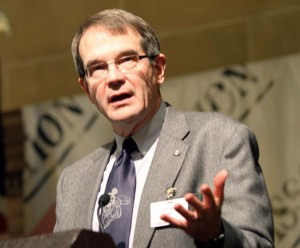Chances for a quick and amiable settlement in contract talks between the United Auto Workers Union and Ford Motor Co, General Motors and Chrysler Group appear to be fading as labor and management head towards their Sept. 14th deadline.
Both sides continue to put a positive spin on the pace of talks – at least for public consumption – but sticking points are starting to develop. The union, for one, is taking an increasing tough tone on the two-tier wage system the Big Three insist they need to stay competitive. And, the manufacturers warn, that without a sense they can remain on a cost par with their foreign competitors they will need to consider exporting more jobs.
On the other hand, the makers are also dangling a carrot, suggesting that labor peace could lead to significant job creation in a domestic industry that has seen its job base shrivel over the last several decades.
The two-tier wage debate has spurred angry talk – and some local demonstrations – in recent weeks, though UAW president Bob King continues to insist he is “upbeat” about the prospects for reaching a peaceful resolution.
King has repeatedly suggested he is seeking “creative solutions” to completing negotiations with U.S. domestic automakers that would keep them competitive against Asian and European rivals. “I’m upbeat because there is a real commitment to keep the companies successful,” King added this week.
However, he also indicated, for the first time, that the negotiations could drag past the mid-September expiration of the current contract. In the past, UAW leaders have always stressed contract negotiation would drift without a hard and fast strike deadline.
The union, however, faces an acute dilemma this year. It cannot strike at either General Motors or Chrysler under the terms of the 2009 federal bailouts that saved the two companies. The union’s executive board is also reluctant to single out Ford, the only company it can legally strike.
Targeting Ford might result in a break from the UAW’s long-term commitment to pattern bargaining where it negotiates nearly identical contracts with all three companies and does not unfairly penalize one company. Ford officials also are thought to have warned the union in no uncertain terms a strike would result in more jobs leaving the U.S. for Mexico and Canada.
King indicated the union is concerned about the competitiveness of all three companies and prefers to avoid any kind of confrontation. But it also appears the GM, Ford and Chrysler have given little ground in critical areas such two-tier wages.
The union’s demand for higher wages for the second-tier workers has become the union’s top demand ahead of even increases in profit sharing and fresh payments to the Voluntary Employee Benefit Association, which pays for the health care of thousands of retirees.
Second tier workers now make $14 per hour to $16 per hour and King reiterated the second tier wage is insufficient to put workers in the middle class. The union has long been proud of the fact it was once able to provide workers with essentially a middle class wage of more than $60 per hour plus benefits.
GM, Ford and Chrysler may be willing to raise the wage some but they have indicated they are not prepared to put new hires on a path that would eventually boost wages to the current level of $29 per hour. The old wage model no longer works, they contend, in the face of non-union competition from transplants.
The UAW leadership has known for more than a decade the day of reckoning was coming but the union’s executive board has never managed to come up with an adequate response. Instead they have preferred to defer action, hoping the automakers would regain some of their economic power.
King did take aim at federal policy makers for failing to tax large corporations while with the Tea Party has pushed for spending cuts. The spending cuts have led to prolonged unemployment, King said.
“I don’t accept this framework,” told the Detroit Economic Club. “I don’t believe the United States of America is broke.”


Think you have a typo in the story Paul. I was with GM for 31 years and I never came close to making $60,000 an hr. I think you meant $60.00 an hr.
You didn’t? Wow, then if they hadn’t goofed your paycheck maybe they wouldn’t have needed to go bankrupt…?
Will fix. Thanks for the eagle eyes!
Paul E.
“The old wage model no longer works, they contend, in the face of non-union competition from transplants.”
Therein lies the problem. Until some force of nature, like a union, reverses the economic “race to the bottom” that so plagues this nation right now, the UAW will be on a hard road to getting this tw0-tiered wage put into a more equitable manner. The UAW absolutely needs to organize one of the southern companies now, yet if they have nothing to show the southerners, why should the southerners pay any attention to the UAW? Quite a quandary. So many folks in our Wal Mart economy can see only reduced wages and benefits as the answer, rather than advocating for higher wages and benefits. I write out of frustration, as I certainly see no end in sight for the misery, and I hope that the leadership of the UAW, that I have been part of for over 30 years, is wise enough not to rankle the public too much over this two-tiered system, as distasteful as I find it. My goodness, we have absolutely got to find a way to organize one of the transplants, or just fade into oblivion. I hope the average active UAW member can see past the end of his nose at this time and will not push King into a corner trying to get things from the D3 he cannot achieve. It is just really upsetting.